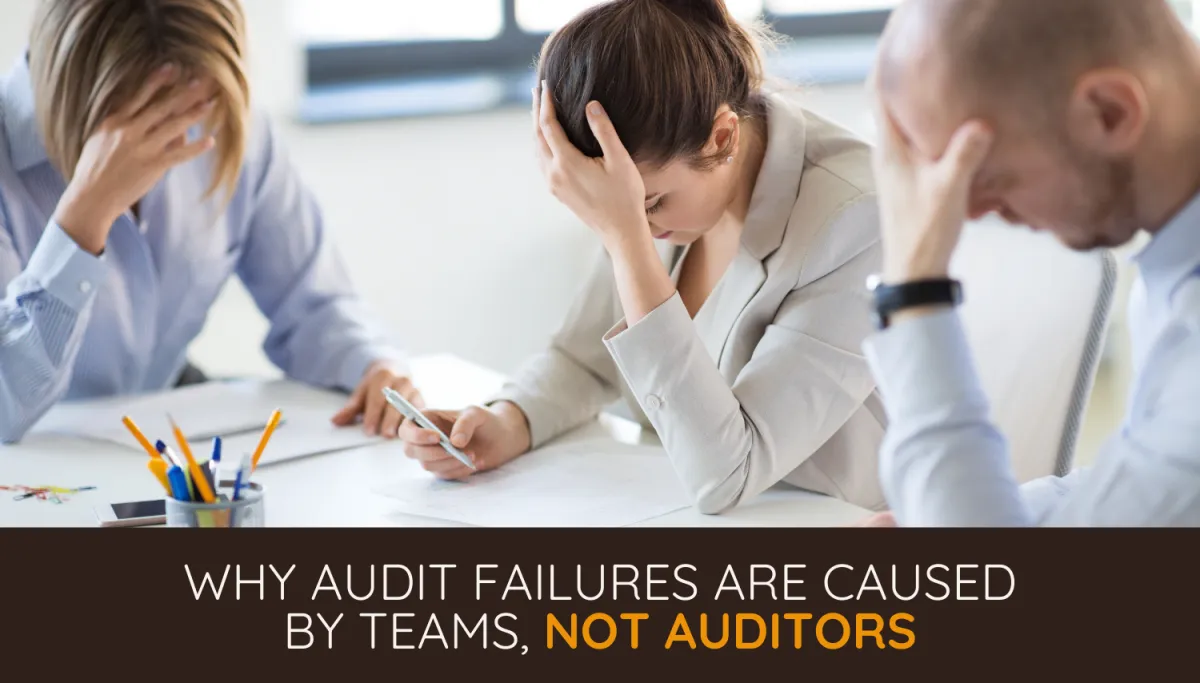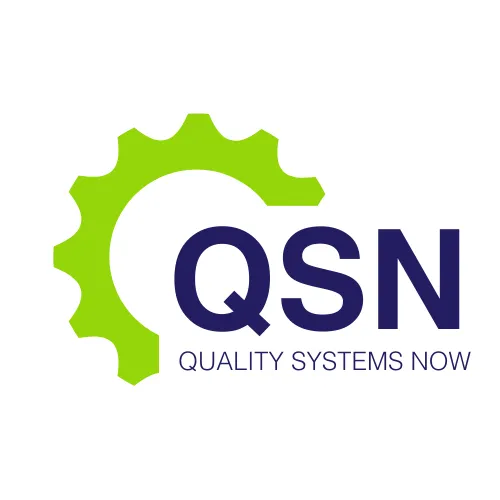LATEST NEWS

Why Audit Failures Are Caused by Teams, Not Auditors
The effectiveness of an audit often depends on the preparation and the mindset of the team involved. While auditors are sometimes blamed for failure, the true root causes of audit failures lie within the teams that conduct internal processes, manage systems, and handle documentation. This article addresses the crucial factors leading to audit failures, providing insights into how teams can better prepare to meet audit standards, and why improving team readiness is essential for avoiding failure.
The Truth About Audit Failures
Many organizations blame auditors when they fail an audit. However, it's vital to shift the perspective and understand that audits themselves don't fail; the teams involved in the processes do. A poorly prepared or ill-trained team, inadequate systems, and mismatched documentation often contribute to audit failure. These issues, which might seem minor at first, accumulate over time and culminate in audit outcomes that could have been easily avoided with proper preparation.
Lack of Preparation and Training
One of the most common causes of audit failure is the lack of preparation and training for the team involved. Auditors ask detailed, specific questions, and when team members aren't well-prepared, they can become flustered, offering incomplete or inconsistent answers. This lack of readiness raises red flags for auditors, ultimately contributing to a failed audit. To avoid this situation, companies need to ensure that their staff is well-versed in all processes, expectations, and audit protocols before the audit date.
Processes Not Matching Documentation
Another critical issue that leads to audit failure is when the actual processes don't align with the documented procedures. It’s easy for businesses to update their documentation without ensuring that operational processes are updated accordingly. Auditors often focus on the discrepancies between documented procedures and real-world practices. These inconsistencies reveal a lack of control and can seriously damage the credibility of a company’s compliance efforts.
Documentation and processes must go hand-in-hand. Regular reviews and updates of both are necessary to ensure that practices are accurate, efficient, and compliant with regulations. Teams need to be proactive about ensuring that there are no gaps between what is written and what is practiced.
Leaders Ignoring the Warning Signs
Leaders who fail to recognize early signs of potential issues are also contributing to audit failures. Effective leadership requires an understanding of where the company stands in terms of audit readiness. Ignoring these signs, such as inconsistent documentation, unaddressed process inefficiencies, or a lack of team training, sets teams up for failure when the audit day arrives.
Leadership plays a pivotal role in fostering a culture of compliance and preparation. Teams need guidance, resources, and consistent reminders about the importance of audit readiness. Without leadership involvement in setting expectations and providing necessary support, the risks of audit failure multiply.
Why Team Preparation Is Crucial
Audit preparation goes beyond just following checklists or ticking boxes on a compliance document. It involves ensuring the entire team understands their responsibilities and is capable of answering auditors’ questions confidently and accurately. This preparation can only come from a deep understanding of the processes involved and continuous training to keep up with changing regulations and standards.
Effective preparation should include:
Regular internal audits to simulate real audit scenarios and identify potential issues before they become major problems.
Ongoing training on audit procedures and industry-specific regulations to ensure everyone is up to date with the latest standards.
Clear communication channels to ensure that all team members are aligned with audit expectations and procedures.
By implementing these proactive measures, teams will be better equipped to handle the tough questions auditors pose, ensuring a smoother audit process and better results.
Building an Unshakable Audit Strategy in 2025
As we move into 2025, the focus on building robust and resilient audit strategies has never been more critical. Audits should not be seen as a daunting event but rather as an opportunity to showcase the strengths of a well-prepared team. The key to avoiding audit failure lies in preparation and a strong, united effort from everyone involved in the process.
The first step in building an effective audit strategy is understanding that audits are not about passing or failing but ensuring that processes are aligned with industry standards and regulations. By focusing on continuous improvement and addressing weaknesses before they become significant issues, organizations can ensure that audits become a regular part of business growth, not a source of stress.
To build an unshakable audit strategy in 2025, consider the following:
Early identification of potential risks: Regularly assess internal systems and processes to identify areas of vulnerability and address them before the audit.
Comprehensive training programs: Equip teams with the skills and knowledge to answer tough audit questions with confidence.
Cross-departmental collaboration: Encourage a culture where departments work together to ensure that compliance and audit standards are met across all areas of the organization.
By fostering a culture that prioritizes audit readiness, organizations can ensure that audits are seen as a tool for improvement rather than a point of failure.
At Quality Systems Now we help You through the process
The real reason audits fail is simple: unprepared teams. When teams are not equipped with the knowledge, resources, or support they need, audit failures are inevitable. However, by focusing on preparation, alignment of processes and documentation, and active leadership involvement, organizations can prevent audit failures and create a culture of continuous improvement.
With 2025 fast approaching, now is the time to start preparing. Ensure your team is equipped to handle audits with confidence and precision. Don’t let a lack of preparation or misaligned processes ruin your audit results.
